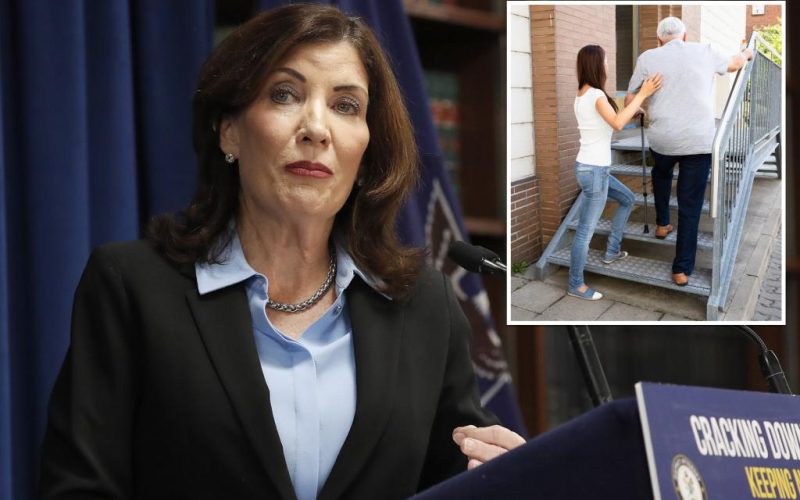A home care provider claimed the Hochul administration rigged the bid to oversee the state’s allegedly fraud-ridden $9 billion home care Medicaid program — picking one company in a backdoor deal.
The Consumer Directed Personal Assistance Program lets Medicaid recipients hire relatives or loved ones as paid personal home care aides.
In order to curb costs in the home care program, the state Health Department selected one firm, Public Partnerships LLC, to replace hundreds of businesses and nonprofits that essentially work as payroll agents or middlemen between Medicaid and caregivers with minimal oversight.
The change means the home care agencies from across the state — the fiscal intermediaries — will see their contracts terminated as part of the overhaul, and they are fighting to block the change.
Carlos Martinez, executive director of the Rockland County-based BRIDGES home care agency, said during a meeting on April 9, a state disability official told him and other current home care contractors that Public Partnerships LLC would take over a statewide fiscal intermediary.
He claimed the revelation showed the bidding process was tainted.
“I remember this well because I was shocked in the moment to be told directly by a government official that the State had already made a decision as to which company would be selected as the fiscal intermediary for all of New York,” Martinez said in a sworn statement provided in a lawsuit filed against the state by another home care provider, FreedomCare LLC.
The home care providers claimed the bidding process was still underway when the state official announced that Public Partnership had been awarded the contract.
“This smoking gun testimony proves what all of Albany has heard since April, as we’ve alleged: Governor Hochul and the Department of Health have rigged the bid for Public Partnerships, LLC (PPL) since the start,” said Akiva Shapiro, a partner with Gibson Dunn who is representing the plaintiff, FreedomCare.
“The backroom deal with PPL needs to end now before it risks New York’s home care program and the hundreds of thousands who depend on it.”
Even before the lawsuit, home care providers were fighting to block the state from having one huge contractor oversee the program.
The CDPAP has grown in popularity over the years, serving 200,000 patients.
With its growth, the program’s costs have spiraled out of control due to a lack of oversight, and prosecutors have targeted it for alleged massive fraud totaling tens of millions of dollars, The Post reported earlier this year.
Hochul, in state budget negotiations with the legislature earlier this year, took on vested interests and won changes to centralize oversight to try to clamp down on costs.
But critics raised eyebrows when she cut a deal with the powerful health care worker union — Local 1199 SEIU — to unionize the personal care home aides and boost their salaries — and costs to the program.
Hochul’s office defended the CDPAP overhaul and denied rigging the bidding process in favor of Public Partnerships.
“Our reforms will protect home care users and taxpayers by ending years of waste, fraud and abuse in CDPAP – and the bottom line is that no state official knew in April who would be selected as a result of this procurement,” a spokesperson for Hochul said Sunday.
“The procurement process was handled by the State Department of Health based on qualifying language approved by the State Legislature – and the CDO [chief disability officer] did not draft the RFP or evaluate the responses. We’re looking forward to delivering a stronger and more effective CDPAP as part of the transition that will take effect by April 2025.”








